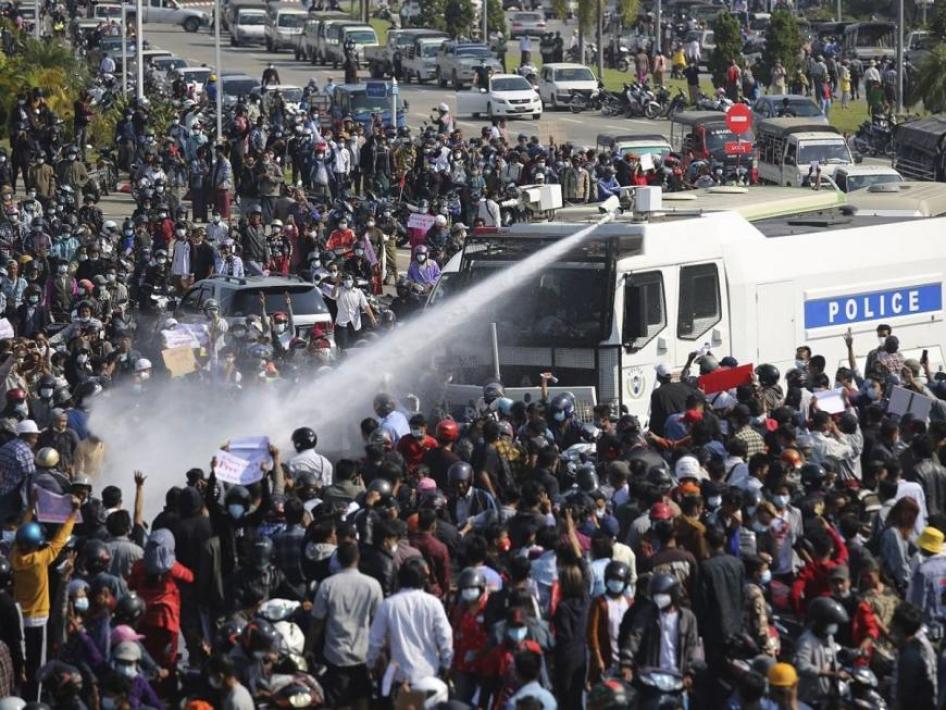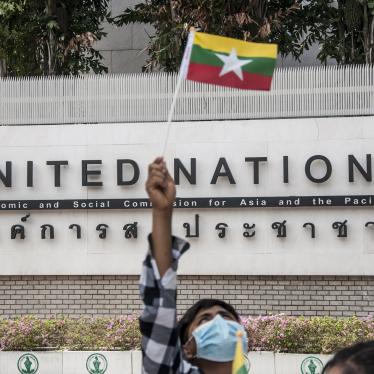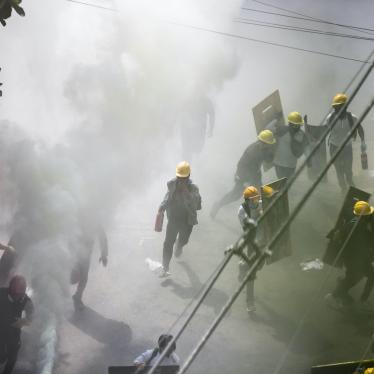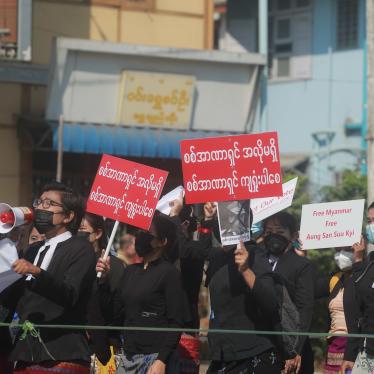The death toll keeps rising in Myanmar as security forces open fire on peaceful protesters. Yet the demonstrations across the country continue.
Masses of people in Myanmar have made it clear that they reject the military’s February 1 coup that overthrew the democratically elected government. Despite the increasing violence by the security forces, the people are showing that they will not be intimidated.
The generals seized power after Myanmar’s electoral commission dismissed their allegations of fraud in last November’s election in which Aung San Suu Kyi led her National League for Democracy party to win re-election in a landslide, and swept both houses of parliament.
The United Nations Human Rights Council unanimously adopted a resolution on February 12, expressing deep concern over the situation in Myanmar, calling for the release of Aung San Suu Kyi and all those arbitrarily detained, and for the junta to cooperate with international rights entities.
Although Brazil, a Human Rights Council member, supported the resolution, its response has been tepid. In a three-sentence statement on February 2, the Foreign Ministry borrowed the “state of emergency” language used by the Myanmar military and, rather than exerting pressure, projected passivity by announcing only that Brazil “expects” a return to democratic norms. The Foreign Ministry might as well have been critiquing the Southeast Asian nation’s response to an earthquake or tsunami. It vowed only—in that three-sentence statement--to “monitor developments.”
Other major democracies, including the United States and France, have done better, condemning the coup and calling for the release of protesters and detained officials. They have , imposed targeted sanctions on junta members including freezing their financial assets, urged the full restoration of communications networks, and exhorted the military to restore democratic rule.
Likewise, the intergovernmental Group of Seven, which represents some of the world’s wealthiest countries, stepped in on February 23 to condemn the military violence—and demanded the security forces exercise “great restraint and respect for human rights and international law.”
Brazil’s decision not to call the takeover a “coup” is distressing. As a country that has suffered under military dictators, Brazil should better respect the right of people everywhere to elect their leaders.
It is clear that appalling rights violations are occurring in Myanmar. In raids starting early on the morning of February 1, the military arrested Aung San Suu Kyi and other civilian leaders of the country’s national and state governments. The newly formed junta arbitrarily detained, incommunicado, hundreds of activists and members of the National League for Democracy. The crackdown and wave of arrests has now spread to include political activists, civil society organizers, national and international journalists, civil servants, and even Buddhist monks.
Within days, the junta had restricted—and at times completely shut down, especially at night —the internet, and had blocked social media applications, including Facebook, Twitter, and Instagram. It lost no time in drafting a bill that if implemented will give it lasting powers to access internet users’ data, block websites, order internet shutdowns, and imprison critics and officials at noncomplying companies.
The junta also imposed a curfew and broad restrictions across the country, effectively outlawing peaceful assemblies, in violation of international law. When hundreds of thousands of people defied the restrictions and turned out to protest, police fired teargas, water cannons, rubber bullets, and live ammunition. One of the first fatal shootings came on February 9, when police in the capital city of Naypyidaw shot Mya Thwate Thwate Khaing in the back of the head. She died 10 days later.
The State Administration Council—the junta installed by the generals--escalated arbitrary detentions, including at least 23 chairpeople and members of the election commission, representing all of Myanmar’s 14 regions and states. A count kept by a local non-governmental organization shows the number of people detained is more than 1,700. A couple hundred are feared forcibly disappeared. And the generals keep ordering repressive revisions to the country’s legal system, including amendments to the law that now sets out long sentences for any action that obstructs military conduct.
Perhaps Brazil’s passivity in the face of a coup should come as no surprise. President Jair Bolsonaro has often expressed nostalgia for the military dictatorship that ruled his own country from 1964 to 1985. Unlike Argentina and Chile, which established truth commissions and prosecuted rights abusers soon after they fell, Brazil was slow to establish a commission, and no Brazilian military official has ever been criminally charged for human rights violations committed during the dictatorship. Brazil’s failure to hold abusers from those ugly years accountable may have helped pave the way for Bolsonaro’s rise to power.
Brazilian authorities need to step up with other governments to demand that the Myanmar military needs to honor the results of November’s national elections. The Human Rights Council has now convened its 46th session, and will further address the Myanmar crisis. Brazil has a new chance to do the right thing: not only urging the release of detainees and respect for human rights, but also strongly calling for the generals to restore democratically elected civilian government and holding those responsible for human rights violations to account.











